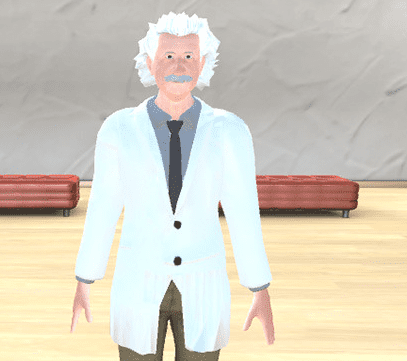
Are you feeling a bit down on your cognitive abilities on a Friday afternoon? The best way to stay sharp for the rest of the day is to assume the physical identity of Albert Einstein – according to Mel Slater and colleagues at the University of Barcelona. Writing in Frontiers in Psychology, the team describe how they embedded male subjects into “virtual bodies” of either Einstein or an average man. The Einstein-embedded subjects performed better at an IQ test than those who appeared as average blokes. The difference was greatest for people with low self-esteem. So, the next time you have an exam or tough problem to solve, put on a crazy wig and false moustache.
One of the most annoying sounds is surely that produced by a dripping tap. Yet it could be a thing of the past thanks to researchers from the universities of Cambridge and Poitiers. While much work has been done on the fluid mechanics of a falling water droplet into liquid, little research has been carried out on what produces the characteristic “plink, plink” sound as the water droplet hits a liquid surface.
By using an ultra-high-speed camera, a microphone and a hydrophone, the team recorded droplets falling into a tank of water. They found, rather surprisingly, that the sound is not caused by the droplet itself, but by the oscillation of a small air bubble trapped beneath the water’s surface. Thankfully, the team offers a solution to stop the noise: add soap to lower the surface tension of the liquid. “[But] I think the best way to stop the sound being produced is to get whatever is causing the drip fixed,” Sam Phillips from Cambridge told Physics World.
Quiz question: what consumes more energy on a yearly basis, insectivorous birds or New York City? The answer, according to an international team of zoologists, is that they both consume about 2.8 exajoules per year. This, by the way, is the same amount of meat and fish energy consumed annually by all humans on the planet. But that’s nothing on the global spider community, which could eat its way through twice as much insect energy as birds.



